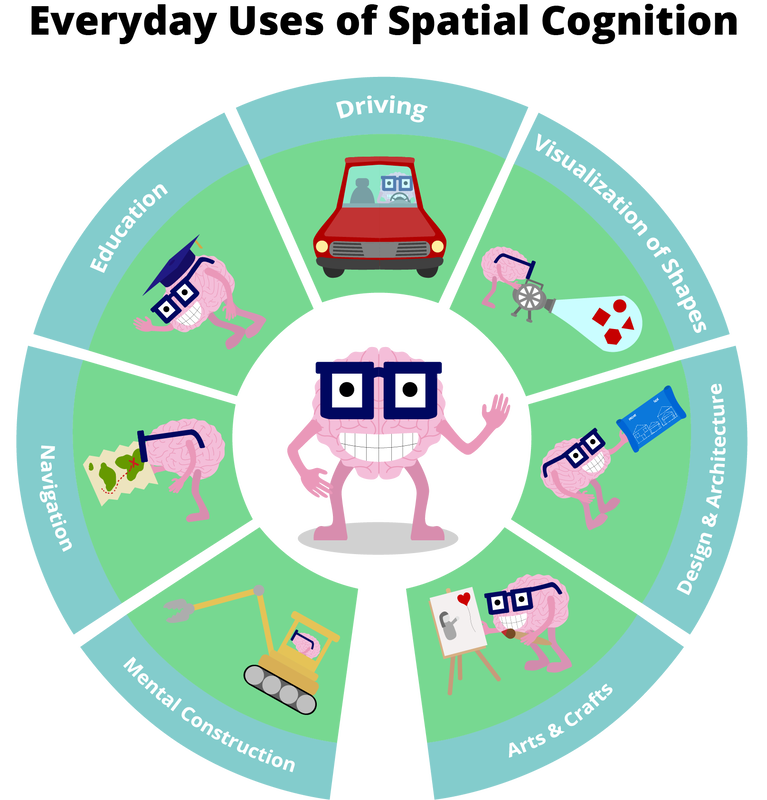What is spatial cognition?
Spatial cognition refers to how we assess the space around us, through the acquisition, analysis, and application of knowledge about our spatial environment. For example, we use spatial cognition when we’re navigating or finding our way in different environments. We also use spatial cognition when we imagine how an object is seen from another perspective, fold clothes, or tidy our house.
What is spatial reasoning?
Spatial reasoning is the ability to think about the space and objects in this space. For example, we apply spatial reasoning in navigation when we figure out the shortest path to go from home to our working place. We also apply spatial reasoning when we need to grab an object and use it as a container or when we imagine manipulations on three-dimensional objects, such as rotations or reflections.
Why are spatial reasoning skills important?
There’s a strong link between spatial reasoning ability and success in STEM subjects (science, technology, engineering, and math)1. However, we also use spatial reasoning skills in everyday life! Tasks such as reading and interpreting maps, parking your car, and playing ball sports all require spatial reasoning skills so that you don’t get lost, dent your car, or get hit in the face with the ball. Creating origami crafts or brushing your hair in a mirror also use spatial reasoning.
Importantly, you can develop and strengthen spatial reasoning skills through practice.
Video Games & Spatial Reasoning Skills
Video Games are being used by various researchers to investigate issues related to spatial reasoning, such as navigation skills within patients with Alzheimers and Dementia2. Block-building games such as Minecraft also build spatial reasoning skills3. Research has shown that video game training enhances cognitive control4, especially when aging5. This is why the qualitative descriptors for reasoning about 3D perspectives6 and about paper folding and punching7 were implemented in video games.
- 1. Newcombe, N.: Picture this: Increasing math and science learning by improving spatial thinking. American Educator 34(2), 29–35 (2010)
- 2. Sea Hero Quest: http://www.seaheroquest.com/site/de/
- 3. Minecraft: https://minecraft.net/en-us/
- 4. Spence, I., Feng, J.: Video games and spatial cognition. Review of General Psychology 14(2), 92 (2010)
- 5. Anguera, J.A., Boccanfuso, J., Rintoul, J.L., Al-Hashimi, O., Faraji, F., Janowich, J., Kong, E., Larraburo, Y., Rolle, C., Johnston, E., Gazzaley, A.: Video game training enhances cognitive control in older adults. Nature 501(7465), 97–101 (2013)
- 6. Falomir, Z.: A qualitative model for reasoning about 3D objects using depth and different perspectives. In: Lechowski, T.,Waga, P., Zawidzki, M. (eds.) LQMR 2015 Workshop. Annals of Computer Science and Information Systems, vol. 7, pp. 3–11. PTI (2015)
- 7. Falomir, Z.: Towards a qualitative descriptor for paper folding reasoning. In: Proc. of the 29th International Workshop on Qualitative Reasoning (2016)






